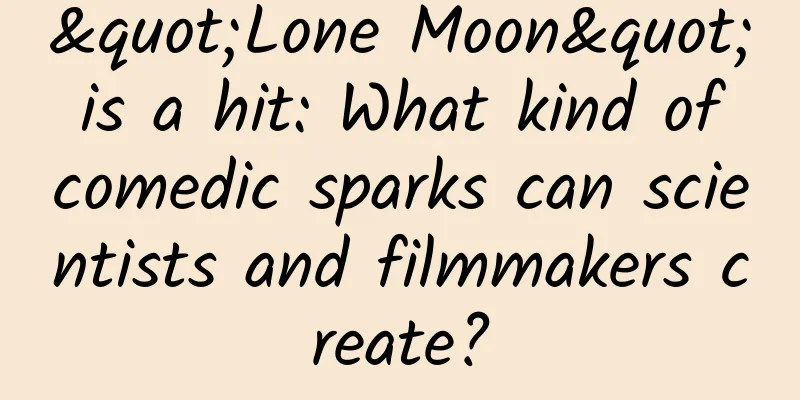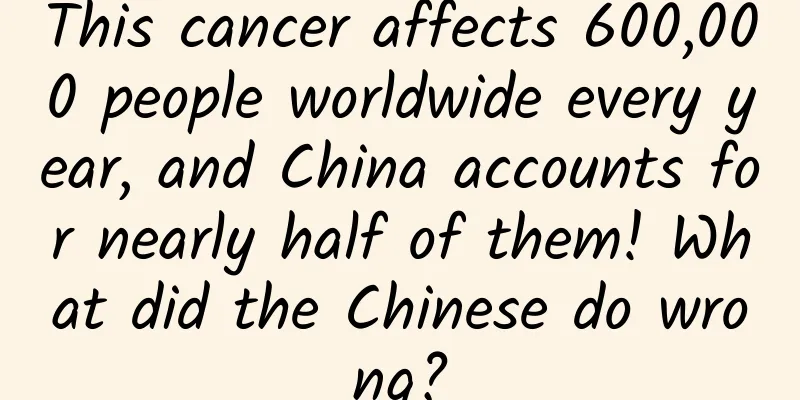"Lone Moon" is a hit: What kind of comedic sparks can scientists and filmmakers create?

|
"Hey! Are you all deaf? Can't you hear me? And there's one person left behind!" In the popular movie "Walking Alone on the Moon", when astronaut Dugu Yue (played by Shen Teng) saw his teammates begin to evacuate the lunar base, he immediately jumped on a lunar rover and rushed all the way to the spacecraft launch station on the lunar surface while shouting loudly into the radio. What many people don't know is that the "drifting" lunar rover in the film is based on my country's "Yutu" lunar rover, and refers to the real and reliable data of the wheels, chassis, driving force and endurance of various lunar rovers since the 1970s. The creative team created art based on this knowledge, imagining what a "lunar rover in 2050" would look like, and ultimately presented the audience with a visual effect that was both technologically advanced and "very real." These "real and imaginary" designs are inseparable from a group of real scientists behind the scenes. Careful viewers will notice a "new job" for science fiction film and television crews in the credits that appear at the end of the film: scientific advisors. Thanks to the joint efforts of the main creative team and the scientific advisory team, "Alone on the Moon" presents a different temperament from previous "Happy Twist" works. For the first time, comedy is put into an imaginary science fiction world - lunar bases, spacecraft, space stations, lunar rovers... Elements full of technology, combined with the core of comedy, provide the audience with a unique audio-visual experience. At the end of the film, five scientific advisors appear, as well as other professional individuals and organizations that provide scientific and science fiction support. (Photo courtesy: Wang Shu) Experts interviewed in this article: Lin Yuzhi, Executive Deputy Director of the Science and Film Integration Committee of the China Science Writers Association, and Representative of the Top Ten of the Beijing Association for Science and Technology Wang Shu , deputy director of the Science and Film Integration Professional Committee of the China Science Writers Association Zhou Wu, Second-level Executive Director and Researcher, China Aerospace Science and Technology International Exchange Center Li Ran PhD in Astronomy, Researcher Scientists active behind the screen When talking about science fiction, people always think of some grand scenes full of futuristic sense in film and television works. However, the world created by science fiction movies cannot be just a castle in the air made up out of thin air, but must also withstand a certain degree of "scientific scrutiny". As the production of science fiction movies gradually becomes more professional and refined, some crews have invited scientific consultants to let scientific researchers participate in the "dream-making" process. When science and art collide, a series of wonderful chemical reactions occur. For example, in order to provide professional support for the design of the lunar rover in the film, scientific consultant Lin Yuzhi also specifically connected with the design team of my country's Chang'e lunar exploration project. **In turn, the filmmakers' wild imaginations have also provided inspiration or goals to real scientists to some extent, ultimately promoting the development of science and technology. ** Zhou Wu, the film's scientific consultant and researcher at the China Aerospace Science and Technology International Exchange Center, said with emotion, "During the final review of the film, I told Director Zhang, 'This lunar rover is too fast, it may not be possible at present'... But the film will also give our scientists an inspiration, and perhaps they will develop such a fast lunar rover in the future." ****In China's science fiction film and television circles, "scientific consultant" is a completely new concept that has only emerged in recent years. In 2020, the "Several Opinions on Promoting the Development of Science Fiction Films" issued by the State Film Administration and the China Association for Science and Technology pointed out: "It is necessary to establish a contact mechanism to promote the development of science fiction films, establish a science fiction film scientific consultant database, and provide professional consulting, technical support and other scientific consulting services for science fiction films." This is the first time that the concept of "scientific consultant" has appeared in an official document. Lin Yuzhi had already started working on this several years before the document was released. He is the executive deputy director of the Science and Film Integration Committee of the China Science Writers Association and one of the scientific consultants for "Alone on the Moon". After the China Association for Science and Technology launched the "Science and Film Integration" project in 2017, Lin Yuzhi witnessed the "Science Consultant" go from a concept on paper to a reality, and gradually participated in all aspects of science fiction film production, becoming a real part of the production team. More than just reviewing films: consultants participate in the entire film production process "The scientific consultants of science fiction films, like other creative staff, focus on the plot, pictures and sounds of the film, helping the crew turn a core idea into a touching work on the screen," Lin Yuzhi pointed out. The scientific consultant not only provides professional advice on the scientific issues involved in the film's storyline and visual content, but also provides reference opinions on related elements including the script, actors, scenes, props, lines, and even the setting of the film's entire worldview. "In general, scientific consultants will run through the entire life cycle of a film project," Lin Yuzhi emphasized. Therefore, scientific consultants also need to divide their work. Different scientific professionals are needed to undertake corresponding tasks at different stages of film creation. Take "Lone Moon" as an example: in the initial stage of the film, after the main creative team has the core ideas, they will go to scientific research institutions and laboratories to contact scientists on the spot to verify whether these ideas are feasible; in the early development stage of the film, the scientific consultants should try their best to help improve the worldview structure of the film, answer the corresponding scientific questions, and improve the scientific background of the characters and scenes; and in the publicity and broadcasting stage of the film, there will be other scientists who will undertake certain popular science publicity work. Zhou Wu still has vivid memories of her work as a scientific consultant for "Alone on the Moon". As early as the script writing stage two years ago, she was invited by the crew to provide professional reference opinions for the script. Later, she also participated in the early review of the film. "At that time, the film had just finished studio shooting, and the kangaroo in the finished product had not yet been produced for special effects. The actors were still performing in green clothes, and many backgrounds were not yet completed." Zhou Wu recalled, "We established a small WeChat group with the production team and the script team. The director could ask questions in the group at any time if he had any questions or wanted to achieve a certain effect. The experts in our group covered various professional fields and played a role similar to that of a question answerer." Li Ran, a PhD in astronomy (signed as "Mr. Fox" in the film), joined the film's scientific advisory work relatively late. "When I joined, the main material of the film had already been shot. I mainly discussed with the main creative team on the finished materials and found some prominent problems. For some problems that have arisen in the plot settings, we need to find a solution that already exists or may exist in the real scientific world." Since the film is set on the moon, Li Ran, who has a background in astronomy, can make full use of his professional advantages to provide the crew with professional knowledge and materials about the moon. Sometimes, he also provides the creative team with some professional astronomical facilities. "But more often, I look at the film from the perspective of a scientist and physicist in a broad sense to see if there are any problems," he said. Qualified scientific advisor: "Help, don't cause trouble" The credits at the end of the film "Alone on the Moon" list five scientific advisors . But in fact, the scientists involved in the film's creation are not limited to these five. The reporter learned that there are also many "unsung heroes" from various professional fields who are contributing to the production of the entire film. In addition to contributing their professional knowledge, the five experts on the list also have to take on the role of matchmaking, using their extensive connections in the scientific community to attract more scientific workers to participate in more specialized professional fields . The job of "scientific consultant" seems simple, but there are considerable obstacles at the beginning. There seems to be an invisible "dimensional wall" between film and television and scientific workers. "The more successful a film creation team is, the stronger their artistic persistence is; and the more successful a scientific researcher is, the stronger their scientific persistence is." Lin Yuzhi explained, "They have achieved great success in their respective fields. The most difficult thing is how to make these two groups respect and understand each other and work together for the same goal." Scientific consultant Wang Shu feels the same way: "When I was in contact with film practitioners, I found that they often had a concern - they were worried that scientific workers would be too concerned about some scientific details because they did not understand the characteristics of artistic creation, which would lead to a reduction in the space for artistic creation." Wang Shu believes that scientific consultants should respect the artists' freedom of creation, meet the scientific professionalism of the works on this basis, and leave the scientific gaps that need to be filled in the film and television to professionals who have undergone rigorous scientific training. She accurately summed up the attitude that scientific consultants should have in one sentence: "Help, don't make trouble." As a comedy, the creative tone of "Alone on the Moon" should be "brain-opening", but the film also needs to incorporate rigorous and realistic scientific elements. The difficulty of this work can be imagined. Fortunately, the "dimensional wall" between the two seemingly incompatible groups is not so unbreakable. Chief Director Zhang Chiyu once said that there is a saying in the comedy world that "the more real, the more fun", which means that being as real as possible in details can actually amplify the comedy effect of the movie. This sentence has given a lot of inspiration to the scientific advisory team. In people's impression, science is rigorous and comedy is absurd, and there is a world of difference between the two. But in practice, they can complement each other and bring out the best in each other. During the cooperation, the scientific consultant and the film and television team gradually increased their understanding and appreciation of each other's work. Zhou Wu recalled this experience and said: "We worked together for more than two years. Through this running-in process, we more or less had some influence on the crew. In the design of some scenes and sound effects, the portrayal of characters, and even the design of passwords, I feel that Director Zhang respects our scientific consultant very much, which is really rare." "Seriousness" is not just for scientists. Scientific consultants can also appreciate the professionalism of the film and television creative team. "Hao Han, who plays the kangaroo 'Gangzi' in the film, moved his home to a zoo and spent four months observing and imitating kangaroos on the spot," said Lin Yuzhi. "When the actors faced the empty green screen, their 'overflowing' expressiveness really made my scalp numb!" "Audience Picking Bugs" Opens Up New Ideas for Popular Science "Alone on the Moon" is positioned as a science fiction comedy. In addition to the "Tencent content" of the film, the audience also talked about some "scientific bugs" in the film. Shortly after the film was released, many viewers discussed the various scientific details that appeared in the film. “Can you see the light of a flashlight on the moon?” "Wouldn't astronauts jump very high when they walked on the moon?" "Shouldn't communication between the Earth and the Moon be two-way?" Finding faults in movies from a scientific perspective is also one of the pleasures of being a science fiction audience. **When the Hollywood science fiction movie "Interstellar" was a hit, many netizens went to the cinema to watch it twice or even three times just to find some scientific loopholes in the details of the movie. The scientific consultants of "Alone on the Moon" have always been open-minded and positive about the audience's active "bug finding". "I found a very interesting phenomenon - the more influential the science fiction movie is, the more people will seriously find the 'scientific bugs' in it. From "2001: A Space Odyssey" to "Jurassic World", to "Interstellar" and "The Martian", bug finding seems to have become a tradition." Lin Yuzhi concluded. "People are willing to spend time thinking, checking and understanding, which shows that the content of the movie has indeed aroused their interest." Wang Shu said. As we all know, scientific research must be based on a rigorous and realistic spirit, but in the environment of film and television creation, sometimes a certain degree of "flexibility" is also required to serve the needs of the plot. At this time, scientific consultants must try to bridge the gap between scientific and artistic creation. Zhou Wu gave an example: "In the real world, people on Earth can see and hear the activities of astronauts on the moon, and astronauts can also receive information from the Earth. But this conflicts with the needs of the plot. The Earth-Moon communication set in the plot is one-way." In this regard, the solution given by the scientific consultant is to set up some obvious technical faults on the moon to create a situation where only one-way communication is possible, so as to push the plot forward. Li Ran believes that the realism of science fiction movies comes from the way the story is told and the construction of details. As long as these aspects of the film can be logically self-consistent or consistent with people's perception of the real world, it is relatively "scientific". In fact, the fans' endless interest in collecting bugs and discussing them has inadvertently opened a door to popular science. Lin Yuzhi pointed out that a good science fiction movie is like "making dreams", which can help people free their curiosity and imagination from the tedious "daily life" and ignite the public's interest and passion for science and technology. **"When a viewer takes up a magnifying glass and carefully examines those scientific bugs, he is actually already on the road of scientific exploration." He said. "For example, when The Wandering Earth was a hit, many people searched for the concept of 'Roche limit'. ** The movie's portrayal of the 'Roche limit' was not accurate, but instead aroused people's enthusiasm to understand it." "It is better to hear than not to hear, it is better to see than to hear, it is better to know than to see, and it is better to practice than to know." Wang Shu used the famous saying of the ancient thinker Xunzi to explain the inspiration of science fiction movies. "I watched a science fiction movie and found scientific concepts that I didn't know before, so I looked them up; I found something that might be wrong, so I thought about it and even tried to explain it more clearly. This is the process of 'seeing, knowing, and practicing'. From the perspective of science communication, I am very happy to see it happen." There is a promising future for domestic science fiction films Compared with Hollywood's years of deep cultivation in the field of science fiction, Chinese science fiction films started relatively late. Although there are gems such as "The Wandering Earth" and relays such as "The Lone Moon", overall there is still a lot of room for improvement. Some of Hollywood's experience in the field of science fiction film and television production is worth thinking about and learning from for Chinese filmmakers and production teams. Hollywood and the scientific community have a long history of cooperation. In the 1960s, NASA established a public affairs department specifically to connect with Hollywood production teams. They even opened the space launch center to directors for free, and even NASA's aerospace engineers could appear in the movie for free. In fact, the core reason why NASA "opened the door to convenience" is to ensure the positive public image of the agency in film and television works. In 2008, the National Academy of Sciences (NAS) launched the "Science and Entertainment Integration Project Team", whose main task is to send scientists from various fields to Hollywood. Since its establishment, the organization has provided scientific consultants for thousands of science fiction films and TV series. Such a large-scale expert pool has further expanded the "think tank" of Hollywood science fiction films. The Hollywood model is worth thinking about and learning from, but it does not mean that we should copy it completely. "Our level of industrialization and our local culture are different from those of the United States, so we need to explore a system that suits the current situation of our own science fiction film industry in China," Lin Yuzhi emphasized. "China has entered the space age. Our space station, lunar exploration program, Mars exploration program, and future deep space exploration program are all providing rich materials for our country's science fiction creation." Zhou Wu told reporters, "At the same time, our country's science fiction film industry has made great progress. The box office performance of "Lone Moon" in the past few days also shows that our science fiction film market is very prosperous." Well-known science fiction director James Cameron once said: "Science fiction filmmakers cannot create a wave, they can only ride the wave." Establishing the position of scientific consultant in the creation of science fiction films is a bold experiment to ride the wave of the times. "'Alone on the Moon' is just one of our many experimental projects. Next, you will see various science fiction films and TV shows that we have participated in in recent years." Lin Yuzhi gave the reporter a little "spoiler". "These projects will also have scientific consultants involved. I hope this change can truly improve the quality and empower China's film and television industry." Produced by Beijing Association for Science and Technology Media Center Text Coordinator: Ding Lin, Liu Qian Reporter: Duan Ran |
<<: Why are there no penguins in the Arctic? Actually there were
>>: The science behind hangovers is actually...
Recommend
Unveiling the true colors of the starry sky: Why do Uranus and Neptune, which are so similar, have such different colors?
Author: Duan Yuechu Uranus and Neptune are among ...
These 10 cognitions may be the gap between you and the UI designers of big companies
As UI design continues to gain popularity, althou...
The third trick of the three crazy demolitions to make money: How to make money with WeChat emoticons? How to earn over 10,000 yuan a month from your side job
Course Description Plan 1: Analysis of new etique...
China Automobile Dealers Association: Automobile transaction situation in Beijing in April 2020
1. New car transactions in April 2020 1. New car ...
The secret that Leeuwenhoek guarded so closely was finally revealed by scientists: That’s it?
In the 17th century, Dutch businessman Antonie va...
SEM practical case: How to do Baidu bidding promotion?
There are too many articles about bidding on the ...
What does depression do to the brain?
This article was reviewed by Zhao Wei, deputy chi...
Case Analysis|Review of Himalaya FM's "66 Membership Day" event
1. Activity Background 1. Market conditions Pay a...
Can fish oil lower blood lipids? Can sweating more after a fever help you get better faster? The truth is...
Do you take medicine when you have symptoms of po...
Report: Only 4% of iOS users in the U.S. opt in to ad tracking
According to Flurry Analytics, which has been tra...
The first 10,000-meter deep earth scientific exploration well in my country has been drilled
Xinhua News Agency, Urumqi, May 30 (Reporters Li ...
Consumer Reports tests Model 3 fully autonomous driving: Not worth it
There is a saying circulating on the Internet: &q...
Pinduoduo’s 5 high-conversion marketing strategies!
Pinduoduo , a new internet celebrity and a three-...
Are sun-protective clothing that costs thousands of dollars just a waste of money?
People who love beauty should of course pay atten...
Try the Xiaozhi Butler Robot. Is it time to hire an intelligent assistant?
In addition to fear, AlphaGo's victory should...









